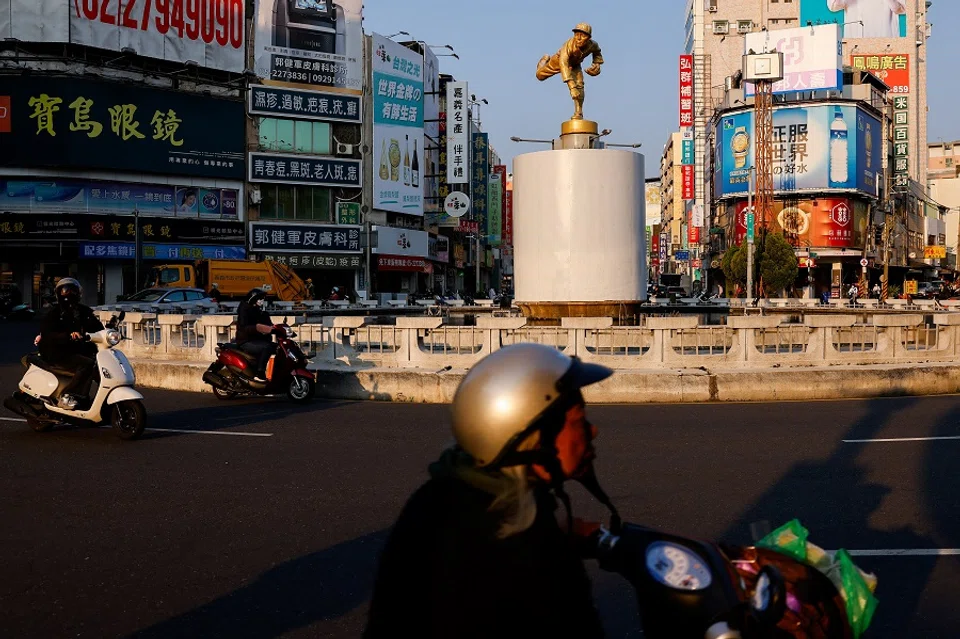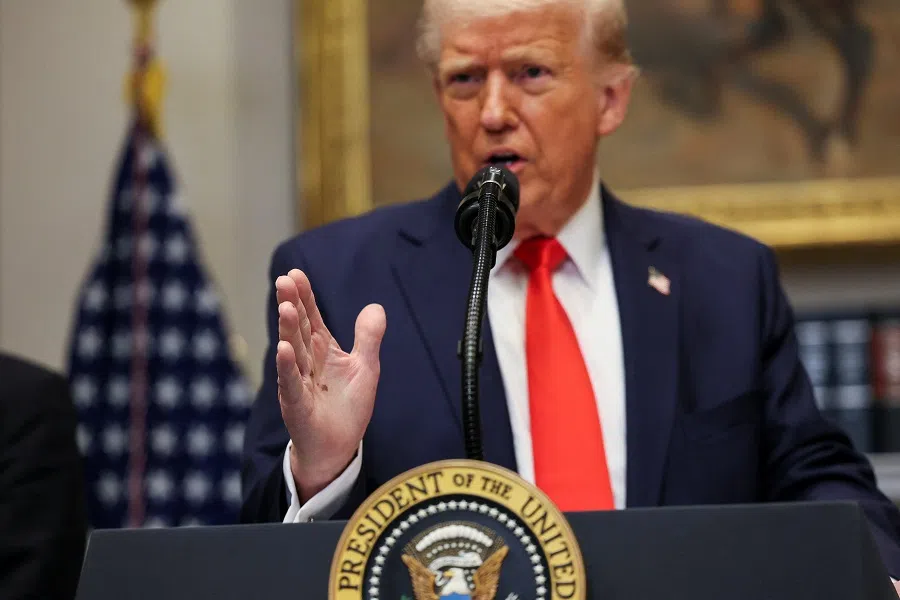Renaming Taiwan: A new US-China flashpoint?
A recent bill introduced to the US Senate to officially replace “Chinese Taipei” with “Taiwan” across all federal agencies stands a chance of success compared to the past. While the bill will not alter the US’s “one China” policy, it undoubtedly still holds symbolic significance, says academic Ghulam Ali.

While President Donald Trump’s tariffs war on China — and much of the world — dominated headlines, a quieter but significant move was underway.
On 12 March 2025, US senators John Curtis and Jeff Merkley introduced the bipartisan Taiwan Representative Office Act in the US Senate, intending to officially change “Chinese Taipei” to “Taiwan” in all federal agencies. The legislation seeks to change the name of the Taipei Economic and Cultural Representative Office (TECRO) to the Taiwan Representative Office (TRO). The sponsors of the bill stated that the new name would truly represent the purpose of an “embassy”, support democratic Taiwan and send a strong message to China.
... Donald Trump has taken a non-committal position on the island’s defence against a possible Chinese attack.
Conflicting signals
This bill was tabled at a time when the Trump administration has further compounded US strategic ambiguity towards Taiwan by signalling both support and opposition towards it.
In February, a pair of US Navy ships transited through the Taiwan Strait for the first time under the Trump administration. During a “routine” update of the US State Department’s website, it removed the phrase “People’s Republic of China” in favour of simply using “China”. The US also removed the statement that “we do not support Taiwan independence”. Besides this, the website added references to Taiwan’s cooperation with the Pentagon in a semiconductor project and support for Taiwan’s membership in international organisations. The move angered China, which demanded the US to ‘correct the mistake”, while Taiwanese officials applauded it.
At the same time, Donald Trump has taken a non-committal position on the island’s defence against a possible Chinese attack. In February 2025, when a reporter asked if his policy was that China would never take Taiwan by force while he is president, Trump declined to provide a definitive answer, stating, “I never comment on that. I don’t comment on it because I don’t want to ever put myself in that position.”

A win for Taiwan?
This is not the first time that an initiative to rename the island’s representation office from “Taipei” to “Taiwan” has taken place. Bills were presented in preceding years in a row, but they could not gain traction. In 2022, Marco Rubio, then a senator, was involved in bipartisan efforts for the Taiwan Policy Act of 2022, which initially included a provision to change the name; however, that provision was removed from the final enactment.
Bonnie Glaser, the director of the Indo-Pacific program at the German Marshall Fund, remarked that Taiwan should focus on strengthening its defence instead of pursuing symbolic gestures.
Experts provided mixed opinions regarding the proposed legislation, with some praising its symbolic significance while others warned of political risks. Former Taiwan Foreign Minister Joseph Wu praised it, stating that “clarity in Taiwan’s international identity is crucial for expanding diplomatic space”. Russell Hsiao, the executive director at the Global Taiwan Institute, also emphasised the importance of symbolism in the cross-strait context. Bonnie Glaser, the director of the Indo-Pacific program at the German Marshall Fund, remarked that Taiwan should focus on strengthening its defence instead of pursuing symbolic gestures.
Chinese analysts and media raised their concerns, describing the bill as creating “one Taiwan, one China” to leverage tense cross-strait relations for political advantage. Wu Xinbo, director of the Center for American Studies at Fudan University said, “If the new US administration’s China policy does not meet expectations, it may play the Taiwan card, potentially crossing established red lines, especially under the influence of pro-Taiwan figures.”
Taiwan losing more ground globally
In a parallel development, Taiwan faced setbacks. In early March, South Africa changed the name of the “Taipei Liaison Office in South Africa” to the “Taipei Commercial Office” (TCO). At the same time, it asked the TCO to move out of the administrative capital, Pretoria, to another city by the end of the month (South Africa has three capitals; the other two are Cape Town, the legislative capital, and Bloemfontein, the judicial capital). Since 1997, when South Africa shifted its diplomatic relations from Taiwan to China, this recent action has been the most significant blow to Taipei’s diplomatic standing. Taiwan issued a demarche to South Africa.

China and Taiwan have remained locked in a struggle for diplomatic recognition from other countries. This competition intensified with the rise to power of the pro-independence Democratic Progressive Party (DPP) in Taiwan in 2016. Beijing has garnered more countries to its side. In the most recent case, on 15 January 2024, Nauru severed diplomatic ties with Taiwan in favor of establishing relations with China. As of March 2025, Taiwan maintains official diplomatic relations with only 12 countries, mostly small states in the Pacific and Latin America.
The bill, which stands a chance of success compared to the past, will not alter the US’s “one China” policy, but it undoubtedly still holds symbolic significance.
China protests against countries that pursue diplomatic relations with Taiwan, even if such actions are consistent with the “one China” policy. In 2021, Lithuania became one of the few nations to permit Taiwan to use the name “Taiwanese Representative Office in Lithuania” instead of the typical “Taipei” for its new office. This angered China, which downgraded its diplomatic relations to the level of chargé d’affaires and imposed a trade embargo. In October 2024, after India permitted the establishment of a second Taipei Economic and Cultural Office in Mumbai, China registered its objection.
Considerable implications
The bill, which stands a chance of success compared to the past, will not alter the US’s “one China” policy, but it undoubtedly still holds symbolic significance. The current name refers to the city of Taipei, not all of Taiwan. This move could set a precedent for other countries, especially in the West, to follow, as Taiwan’s democratic credentials and technological achievements bolster its global reputation. Since the name change does not signify a shift in the “one China” policy, it may provoke a lesser reaction from China.
The tabling of the bill and the reactions to it highlight the volatility of cross-strait relations and the divergent positions of Washington and Beijing. The bill’s final fate will largely depend on the trajectory of China-US relations. If passed, and subsequently, US federal departments replaced “Taipei” with “Taiwan” it would have considerable implications for US-China relations, cross-strait relations and China’s Taiwan policy.





